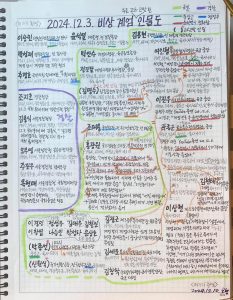
Introduction
In December 2024, South Korea witnessed a significant political crisis with the declaration of emergency martial law by President Yoon Suk Yeol. This move, aimed at addressing perceived threats to the country’s democratic order, was met with widespread opposition and ultimately led to its swift reversal. In this blog post, we will delve into the events leading up to and following the declaration of martial law, providing a detailed timeline of the key developments.
The Background: Political Tensions and Gridlock
The political landscape in South Korea has been marked by intense conflicts and power struggles between the ruling People’s Power Party (PPP) and the main opposition Democratic Party (DP). The DP, which holds a majority in Parliament, has been critical of President Yoon’s administration, initiating impeachment motions against key government officials and fast-tracking a scaled-back budget bill without support from the PPP.
The Declaration of Martial Law
On December 3, 2024, President Yoon Suk Yeol declared emergency martial law, citing the need to eradicate pro-North Korean forces and protect the free constitutional order. The declaration was met with immediate rejection from opposition politicians and members of his own party. Yoon accused the opposition of engaging in anti-state activities and controlling Parliament, which he claimed was paralyzing the judiciary and executive branches.
The Martial Law Decree
The martial law decree, signed by Martial Law Commander General Park An-su, prohibited all political activities, including parliamentary activities, and placed all media and publications under the control of the Martial Law Command. The decree also banned strikes, work stoppages, and rallies inciting social unrest, with violators facing arrest, detention, and search without a warrant.
Opposition Reaction and Parliament’s Response
The opposition reacted swiftly to Yoon’s announcement. Lee Jae-myung, who narrowly lost to Yoon in the 2022 presidential election, called Yoon’s declaration “illegal and unconstitutional”. Even Yoon’s party leader, Han Dong-hoon, criticized the decision as “wrong” and vowed to “stop it with the people”. In an emergency session convened by Parliament, lawmakers passed a motion demanding the lifting of martial law, with 190 of its 300 members present.
The Military’s Response and Parliament’s Vote
Despite the vote, the military maintained that martial law would remain in place until formally lifted by President Yoon. However, the Parliament’s resolution was clear: martial law must be lifted. The military eventually retreated from the Assembly building after the lawmakers’ determination to end the emergency rule.
Consequences and Aftermath
The declaration of martial law sparked widespread protests in front of Parliament, with citizens chanting slogans such as “Immediate withdrawal of martial law!” and “Yoon Suk-yeol, to prison!”. The Korean Confederation of Trade Unions declared an indefinite general strike until the Yoon administration stepped down, invoking past military coups in 1961 and 1979.
International Reactions and Implications
The international community remained largely noncommittal during the crisis. U.S. State Department officials provided vague responses to questions about the showdown at the National Assembly, reflecting a long history of tolerating authoritarian behavior in South Korea for the sake of cohesion against the North Korean threat.
Conclusion
The declaration and subsequent lifting of martial law in South Korea serve as a stark reminder of the country’s complex political landscape and the ongoing power struggles between different factions. While the immediate crisis has been resolved, the underlying tensions and potential for future conflicts remain. As South Korea continues to navigate its democratic journey, it is crucial to address these issues through peaceful and constitutional means.